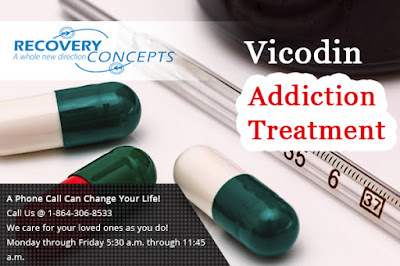Drug or
opiate addiction can be really deadly leading to serious health problems and
even death in some instances. The drug rehab center provides the best treatment
programs to overcome the addiction. Reach out to the rehab centers for
effective treatment of the drug abuse. There are 2 main types of programs
namely inpatient and outpatient program. Find the outpatient addictiontreatment center near you if you do not have enough time for the inpatient
treatment.
Outpatient
rehab allows you to continue living at home during drug or alcohol
rehabilitation. The treatment program costs less than many other different
programs in the treatment center. The rehab program does not include living at
the facility and can vary widely depending upon the need. It is more suitable
for those unable to take extended absences from work or personal obligations.
Before
choosing a program, consider which type of treatment program will suit you the
best and ask questions about the program. An outpatient rehab program offers
drug and alcohol treatment sessions that can be scheduled at different times
throughout the week. The outpatient programs come in a variety of formats,
differing levels of intensity and offer an array of services. The general focus
is on the counseling of the patient, providing education and a network of
support.
Here is the
list of outpatient opiate addiction treatment in Greenville, South Carolina
Greenville –
Intensive
outpatient – This program is similar to
inpatient residential programs with respect to service. The focus is on relapse
prevention. The Outpatient addiction treatment programs usually meet at least 3 days a week for 2-4
hours a day or more. The program is scheduled around work or school for the
accommodation of schedules.
Partial
hospitalization – The
treatment is meant for people who require ongoing medical monitoring but have a
stable living situation. The treatment program usually meets at the hospital
for 3-5 days a week for at least few hours a day.
Therapy and
counseling – These treatments are combined
with treatment methods after inpatient rehabilitation. Therapy and counseling
help the quick identification of the root cause of drug use, repair
relationships and learn healthier coping skills.
These are
the reasons to choose the outpatient facility –
- The treatment is advised to abusers whose addiction is not severe. Are you in the early stage of an addiction? This is the best treatment option.
- You are using it as the continuing care. The outpatient rehabilitation is normally recommended after the treatment at an inpatient facility.
- You need the support of friends and family. Your family members will be able to provide support throughout the entire rehab process.
The
outpatient treatment is appropriate for those whose condition is sufficiently
stable, symptoms are mild, and are willing to participate in the treatment
plan. There are many potential benefits of the treatment on an outpatient
basis. There are many treatment centers in Greenville, South Carolina who can
assist you with the fix-up of drug abuse.













